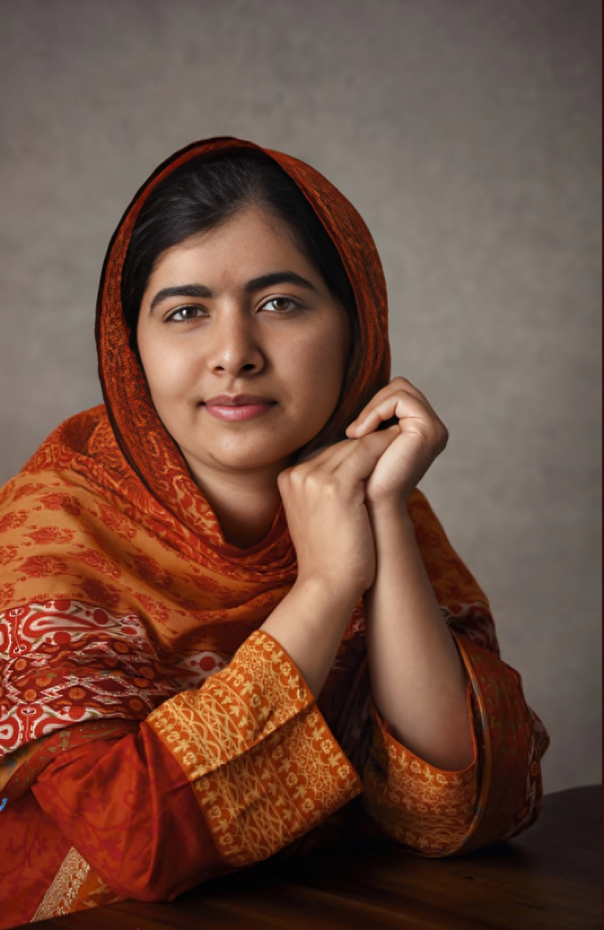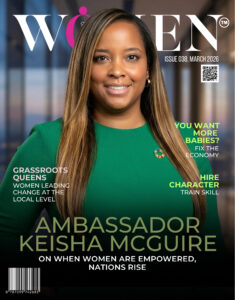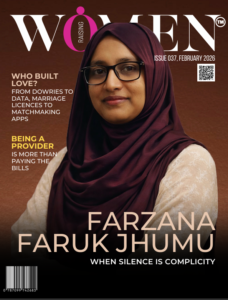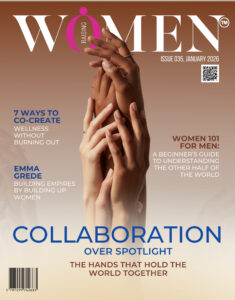Cum Woman who will not be silence
By Emmanuella
The story of Malala Yousafzai is encapsulated in this quote I love so much by C.S. Lewis:
“The only people who achieve much are those who want knowledge so badly that they seek it while the conditions are still unfavourable. Favourable conditions never come.”
Malala Yousafzai is a powerful reminder that for many, the pursuit of knowledge is nothing short of a revolution. A revolution born from the courage and deep commitment of a young girl coming of age, spearheading a movement that was once forbidden to even be spoken about.
What can we learn from the young girl from Pakistan’s Swat Valley who rose to become the youngest Nobel Peace Prize laureate despite all odds?
Early Days and a Girl with Big Dreams
Born on 12 July 1997, Malala grew up in a region where the Taliban’s rule became increasingly oppressive, particularly against women and girls. Her father, Ziauddin Yousafzai, an educator and outspoken advocate for girls’ education, inspired Malala from a young age. She saw education as her right and began to speak out for the girls in her community who were denied that basic privilege.
At just 11 years old, Malala began anonymously blogging for the BBC under the pseudonym Gul Makai. In her blog, she detailed the harsh realities of life under the Taliban and the challenges faced by girls trying to get an education. Her voice was powerful, even at that age. She was unafraid to speak truth to power.
A Voice Amplified by Terror
As her advocacy gained momentum, so did the risks. In 2012, when Malala was just 15, the Taliban made a brutal attempt to silence her. On her way home from school, a gunman boarded her bus and shot her in the head. The attack shocked the world and brought global attention to her cause.
Malala survived, miraculously. After receiving critical medical treatment in Pakistan and later in the UK, her voice only grew louder. What could have ended in tragedy became the catalyst for a global movement.
Malala’s recovery was remarkable, but what followed was even more extraordinary. Rather than succumbing to fear after the incident that almost ended her life, she continued her fight for education, but this time on the world stage. At 16, she delivered a moving speech at the United Nations, proclaiming, “One child, one teacher, one book, and one pen can change the world.”
In 2013, she co-authored her memoir, I Am Malala, which further amplified her story. The following year, at just 17, Malala was awarded the Nobel Peace Prize, making her the youngest recipient in history. Her advocacy led to the founding of the Malala Fund, a non-profit organisation dedicated to ensuring girls worldwide have access to 12 years of free, safe, and quality education.
Advocacy and the Malala Fund
Malala has remained a steadfast advocate for girls’ education through the Malala Fund, the non-profit organisation she co- founded with her father in 2013. The organisation works in regions where girls face significant barriers to education, including Pakistan, Nigeria, India, Brazil, and countries hosting Syrian refugees. The Malala Fund invests in local educators and activists, known as Gulmakai Champions, to bring about change at the grassroots level.
Malala has continued to use her platform to advocate on a global scale. She has addressed the United Nations multiple times, urging world leaders to invest in education. In a speech at the UN General Assembly in 2017, she emphasised:
“Hard to express my joy and gratitude right now as I completed my Philosophy, Politics and Economics degree at Oxford. I don’t know what’s ahead. For now, it will be Netflix, reading and sleep.”
— Twitter, 19 June 2020
Recent Activities and Future Plans
In 2021, Malala appeared on the cover of British Vogue’s July issue, where she discussed her activism, education, and aspirations. In the interview, she reflected:
“I want to serve the community. This is what makes me happy.”
— British Vogue, June 2021
Beyond her activism, Malala has ventured into writing and media to further her cause. She published a children’s picture book, Malala’s Magic Pencil (2017), inspiring young readers to believe in their ability to make a difference. In 2018, she released We Are Displaced, a book that tells the stories of refugee girls around the world.
In April 2017, United Nations Secretary-General António Guterres appointed Malala as a UN Messenger of Peace, focusing on girls’ education. This role is the highest honour bestowed by the UN for an initial period of two years.
GRADUATING FROM OXFORD
Balancing her activism with her studies, Malala graduated from the University of Oxford in June 2020. She shared her excitement on social media, stating:
She also signed a multi-year partnership with Apple TV+ to produce documentaries and content that focus on women’s rights and education, aiming to reach wider audiences through storytelling.
Advocating During the COVID-19 Pandemic
Amid the COVID-19 pandemic, Malala raised concerns about the impact on girls’ education. She highlighted that millions of girls might never return to school due to the economic and social effects of the pandemic. She urged global leaders to prioritise education in recovery plans. In an opinion piece for The New York Times, she wrote:
“We cannot afford to spend the next few years watching girls’ potential wasted and their futures diminished.”
— The New York Times, 13 August 2020
Today, Malala’s work has impacted millions of girls in places where the barriers to education are often overwhelming. Through the Malala Fund, she supports local advocates and programmes that are changing the narrative for young girls everywhere. She is also tackling the systemic challenges girls face, such as poverty, early marriage, and cultural norms that often hold them back.
“Education is not just about learning to read and write,” Malala once said. “It’s about empowerment, independence, and the ability to shape your own future.”
A Legacy in the Making
Malala’s path to becoming an icon was not honey smooth without hurdles. Apart from the life-threatening attack, she was faced with constant criticism from extremists, gender equality skeptics, and those who questioned her motives. But Malala’s resilience has been steadfast regardless of the odds. She continues to advocate for what she calls “the world’s greatest unfinished business”, the fight for universal education.
From the valleys of Pakistan to the halls of the United Nations, Malala Yousafzai teach us that no matter how young, no matter how daunting the challenge, one voice can stir a global change and one bold girl can ignite the light in other girls.
Her fight is not just for herself but for the millions of girls whose voices remain unheard. A girl’s dreams are valid, a girl’s voice is powerful, and her future is limitless. She embodies the mission of raising girls to become great women who lead and inspire change.
And guess what?
Malala’s legacy is still unfolding!
#Girls2Women #raisinggirls







